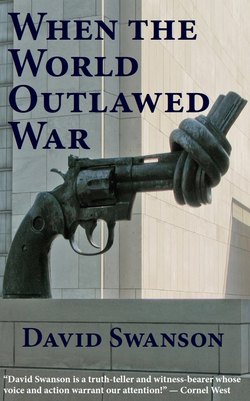Читать книгу When the World Outlawed War - David Swanson - Страница 7
На сайте Литреса книга снята с продажи.
ОглавлениеS.O. LEVINSON AND THE LAW
Levinson came out of the Yale class of 1888, as did Henry Stimson who was Secretary of War under Presidents William Howard Taft and Franklin Delano Roosevelt, and who followed Kellogg as Secretary of State under President Herbert Hoover. Stimson is a good example of a political figure who was moved toward peace by the climate and pressure of the times but who was also ready to distort doctrines of peace into justifications for war at the earliest shift in the cultural climate.
After Yale, Levinson went to work as a lawyer in Chicago. He believed reasonable lawyers could prevent trials. He later believed reasonable nations could prevent wars. Levinson became a skilled negotiator, a wealthy man, and the acquaintance of many wealthy and powerful people. He gave to all kinds of charities, including the peace movement.
When World War I started, Levinson organized influential people to present a peace plan to the German government. After the sinking of the Lusitania, Levinson — possibly ignorant of the Lusitania’s contents — asked Germany to “disavow” “war itself.” Levinson, of course, met with no success in his efforts to halt World War I. Yet this did not seem to discourage him in the least. It is unlikely that World War II or Korea or Vietnam or the Global War on (or is it of?) Terror would have discouraged him either. Discouragement is something we impose on ourselves, and Levinson was not inclined in that direction.
Levinson began to see the central problem as war’s legality. He wrote on August 25, 1917: “War as an institution to ‘settle disputes’ and establish ‘justice among nations’ is the most barbarous and indefensible thing in civilization. . . . The real disease of the world is the legality and availability of war . . . . [W]e should have, not as now, laws of war, but laws against war; there are no laws of murdering or of poisoning, but laws against them.” Others had had a similar idea before, including slavery abolitionist Charles Sumner, who called both slavery and war “institutions,” but no one had ever made the idea widely known or built a campaign to realize its goals.
Emerich de Vattel (1714 - 1767) is considered a father of modern international law. He expressed the common view of his age when he wrote, “The first rule . . . is that regular war, as to its effects, is to be accounted just on both sides.” In the Lieber Code of 1863, President Abraham Lincoln’s guidance for the Union Army, particular atrocities were illegal but war itself was simply neutral. At Versailles, following World War I, a commission was created on the Responsibilities of the Authors of the War and on Enforcement of Penalties. A subcommission recommended prosecutions for atrocities. Another unanimously recommended against prosecutions for “acts which provoked the war.” War making was not a crime.
Early in the winter of 1917 Levinson showed a draft plan to outlaw war to John Dewey, who very much approved. Levinson published an article in The New Republic on March 9, 1918, in which he wrote of outlawing war. Levinson, in his early writings, quoted William James’ 1906 essay “The Moral Equivalent of War” which had included the line “I look forward to a future when acts of war shall be formally outlawed as between civilized people.” At first Levinson favored the League of Nations and an international court using force to impose its decisions, but he came to believe such “force” was just a euphemism for war, and that war could not be ended through war.
In June of 1918 Levinson was pleased to see Prime Minister of the United Kingdom David Lloyd George speak of “making sure that war shall henceforth be treated as a crime punishable by the law of nations.” Levinson at that time backed a strong League of Nations. He pitched both Outlawry and the League to peace groups including the League of Free Nations Association and the League to Enforce Peace. He organized mass meetings and other efforts, working with Jane Addams among others.
Levinson’s thinking, and consequently his political agenda, evolved during the decade of the search for peace. Charles Clayton Morrison’s book, The Outlawry of War, published with the close guidance of and dedicated to Levinson, crystallized the Outlawrists’ views in 1927. Dewey wrote the Foreword, in which he argued that Outlawry would allow internationalism without political entanglement with Europe, would end the divide between individual conscience and the rule of law (a divide created by the legal status of an enterprise of mass killing), and would complete a process from barbarism to civility that had already put an end to private blood feuds and dueling. Dewey suggested that the legal status of war allowed the threat of war to facilitate the economic exploitation of weaker countries. Dewey, who was early to recognize the impact on world affairs of the combination of “the checkbook and the cruise missile” (the title of a 2004 book by Arundhati Roy), envisioned a truly new world that would be produced by banning war and eliminating the threat of it.
